Coffee and tea are more than mere beverages as they have become cultural phenomena deeply ingrained in societies worldwide. Each sip tells a story of tradition, social bonding, and historical evolution. In this exploration of “Coffee & Tea Culture and Tradition,” we will discuss the unique rituals, historical roots, and cultural significance of these beloved drinks.
While highlighting their distinct cultural footprints, we will also uncover the fascinating links that bind them, revealing how they shape and reflect our global community.
Join us on this aromatic journey as we traverse the world through the lens of coffee and tea, understanding not just their flavors but the rich tapestry of human connections they weave.
Coffee: A Global Phenomenon
Coffee, a beverage revered for its rich flavors and energizing effect, has etched its place in various cultures around the world. From the aromatic espresso in Italy to the sweet, milky variations in Vietnam, each region adds its unique twist to the preparation, making it a global phenomenon.
Coffee culture isn’t just about the drink but a social fabric that connects people, often symbolizing a break from the hustle or a moment of reflection.
Tea: Tradition and Tranquility
Tea, on the other hand, embodies tranquility and tradition. Whether it’s the ceremonial matcha in Japan or the robust chai in India, tea cultures worldwide share a common thread of mindfulness and community.
It’s not just a beverage but a ritual, often linked with health, wellness, and spirituality. Tea gatherings, from the British high tea to Chinese ceremonies, are steeped in customs, reflecting deep cultural values.
For those who are passionate about exploring a diverse range of organic teas, Angelino’s offers an impressive collection that can be found here https://angelinos.com/collections/organic-teas.
Common Grounds

Despite their differences, coffee and tea cultures share similarities. Both beverages are central to social interactions and are often enjoyed in communal settings.
They carry historical significance and have played pivotal roles in trade, politics, and social movements. Understanding these beverages’ cultural importance offers a window into the soul of societies worldwide.
Historical Origins and Spread
Coffee’s journey began in Ethiopia, where it was first discovered. It spread to the Arab world, where the first coffee houses emerged, serving as hubs for intellectual discussions.
By the 17th century, this beverage had reached Europe, sparking a cafe culture that persists today. Coffee plantations soon spread to colonies in the Americas and Asia, making it a global commodity.
Tea has ancient origins in China, dating back to the Shang dynasty. It was initially consumed for medicinal purposes before becoming a daily beverage. The practice of tea drinking spread to Japan, Korea, and later to the West via the Silk Road.
In the 17th century, the British popularized tea drinking, leading to the establishment of plantations in India and Ceylon.
Cross-Cultural Influences
Both coffee and tea were initially met with suspicion but eventually became integral to various cultures. They influenced art, literature, and politics, and their trade shaped economies and international relations. The Boston Tea Party and the Coffee Houses of the Enlightenment era are prime examples of how these beverages were intertwined with history.
Brewing Techniques and Rituals
Coffee brewing is an art form that varies greatly across cultures. In Italy, espresso is a symbol of daily life, while in the Middle East, coffee is often brewed with spices.
The Swedish ‘fika’ and the Ethiopian coffee ceremony are social rituals emphasizing the importance of taking time to enjoy coffee with others.
Tea brewing also varies widely. The Japanese ceremony, known as Chanoyu, is a meditative ritual focusing on aesthetics and hospitality. In contrast, the Moroccan mint variation is prepared with grand gestures and served from a height.
The British afternoon tea, meanwhile, is a social event with a specific set of manners and etiquette.
Shared Significance
Despite the differences in preparation and consumption, both coffee and tea rituals emphasize community, hospitality, and the enjoyment of the present moment. These rituals provide a sense of belonging and comfort, serving as a daily reminder of shared human experiences.
Cultural Significance and Social Aspects

Coffee culture is often associated with creativity, discussion, and social engagement. Coffee shops have historically been places for networking, intellectual debate, and artistic expression.
In modern times, they continue to serve as meeting points for business and leisure, symbolizing a fast-paced lifestyle yet providing a space for pause and connection. Tea, in contrast, is often linked with tranquility, health, and harmony.
It plays a significant role in ceremonies and gatherings, symbolizing respect, care, and community bonding. Tea’s health benefits, from herbal infusions in China to Ayurvedic practices in India, also contribute to its cultural significance, promoting a lifestyle of wellness and balance.
Common Social Fabric
Both coffee and tea act as social equalizers, transcending socioeconomic boundaries. They are enjoyed by people from all walks of life, offering a common ground for interaction and conversation. Whether it’s a coffee break or a tea party, these beverages foster a sense of community and belonging.
Health and Wellness Perspectives
Coffee is often celebrated for its stimulating effects, attributed to caffeine. It’s also rich in antioxidants and has been linked to various health benefits, including a reduced risk of certain diseases. However, its impact on sleep and anxiety levels makes moderation key in consumption.
Tea is renowned for its health benefits, ranging from antioxidant properties to stress reduction. Different types, such as green, black, and herbal, offer various wellness advantages. The act of drinking this beverage itself is often considered therapeutic, promoting relaxation and mindfulness.
Balancing Benefits and Traditions
While both coffee and tea have health implications, they are also deeply rooted in cultural traditions. Balancing these aspects involves understanding the beverages’ roles in different societies and recognizing the importance of moderation and mindful consumption.
Economic Impact and Sustainability
The coffee and tea industries are significant contributors to global economies, particularly in producing countries.
Coffee is one of the most traded commodities in the world, while tea plays a crucial role in the economies of countries like China, India, and Kenya. The trade of these beverages has profound economic implications, from farming communities to international markets.
Challenges in Sustainability
However, both industries face sustainability challenges, including environmental impact, fair trade practices, and labor conditions. Climate change poses a significant threat to coffee and tea production, necessitating sustainable farming practices and ethical trade policies.
As we explore the diverse world of coffee and tea culture, discover the perfect espresso companion in a detailed guide highlighting the top Nespresso capsules demanded by coffee enthusiasts
Towards Ethical Consumption
Consumers increasingly demand ethical sourcing and environmental stewardship in coffee and tea production. Fairtrade certifications and organic farming practices are gaining prominence, highlighting a shift towards more sustainable and socially responsible consumption.
Global Variations and Innovations

Regional Flavors
Coffee and tea vary greatly across cultures, reflecting local tastes and traditions. Turkish coffee, known for its strong flavor and thick consistency, contrasts with the lightly roasted version popular in Nordic countries.
Similarly, the spiced masala chai of India offers a different experience from the subtle flavors of Chinese white variation.
Innovations in Brewing and Consumption
Innovation in brewing techniques and flavors continues to evolve in both coffee and tea cultures. Cold brew coffee, matcha lattes, and bubble tea are modern interpretations that have gained global popularity.
These innovations not only offer new taste experiences but also reflect the dynamic nature of coffee and tea cultures.
Fusion and Globalization
The globalization of coffee and tea has led to a fusion of styles and flavors, blending traditional brewing methods with contemporary tastes. This fusion reflects the increasingly interconnected world, where cultural exchange through coffee and tea offers a unique way to experience and appreciate different cultures.
Final Words
Coffee and tea, each with their rich histories and cultural significance, offer more than just a caffeine fix.
They represent distinct traditions and rituals but share common themes of community, wellness, and global influence. Understanding their cultural nuances provides insights into human society and its diverse practices.
Related Posts:
- How To Bake Sausage In The Oven (Breakfast Links &…
- Malt Vs Shake: How Are They Different?
- 10 Best Nespresso Capsules 2023 - Demand by Coffee Fanatics
- Do K-Cups Go Bad and Expire? - Best Before Date and Storage
- Peerless Two Handle Kitchen Faucet – A Mix of…
- Beats and Blenders: A Delicious Guide to Juicing Vegetables




















